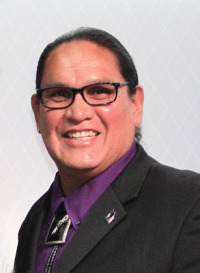
On January 20, 2017, our nation turned a page from the historic presidency of Barack Obama and began the transition to the administration of President Donald J. Trump.
President Trump spent much of his first month in office putting his team together. Many in Indian Country lauded the president’s nomination of Rep. Ryan Zinke (R-Montana) to serve as Secretary of the Interior.
While all federal agencies share in the solemn treaty and trust obligations to Indian Country, the Interior Department most directly carries out this responsibility, overseeing more than 56 million acres of Indian lands and resources on those lands. Interior also administers dozens of programs and services related to tribal community public safety, education, social services, and economic development, among others.
While he served only one term in Congress, then-Rep. Zinke established a proven record of working closely with tribes in the state of Montana on critical issues relating to law enforcement, water rights and water infrastructure, Indian housing, and tribal labor sovereignty. NIGA looks forward to working with Secretary Zinke on issues relating to Indian gaming and reservation economic development as he builds his team at the Interior Department.
Many in Indian Country also look with cautious optimism on the president’s nomination of Tenth Circuit Judge Neal Gorsuch to serve as a justice on the U.S. Supreme Court. If the Senate approves his nomination, Judge Gorsuch would bring significant experience in federal Indian law to the court.
While the Trump administration has already broken the mold on a national scale when compared to previous White Houses, in at least one way for Indian Country—this administration is the same as those in the past: there will be significant opportunities that must be acted on and a number of challenges that must be directly confronted.
While important positions within the Trump administration continue to be filled, the policy rubber is now hitting the road for Indian Country. NIGA has worked directly with the Trump Transition Team to lay groundwork to prepare for this moment.
To ensure that the new administration was well informed about Indian gaming and the variety of issues facing our Member Tribes, NIGA submitted a “Transition Plan” to the White House, describing our industry, our policy goals and priorities, and potential concerns.
First and foremost, our transition plan provides background information about the Indian gaming industry.
Because Indian tribes lack a tax base to generate revenue to meet community needs, we informed the Transition Team that many Indian tribes engage in business-like enterprises, most notably Indian gaming operations. The revenues generated from these enterprises, like the tax base of other forms of government, are used solely to fund basic tribal governmental services and programs—health care, education, housing, elder and child care, and infrastructure—to attempt to address the needs of Indian Country residents.
For purposes of Indian gaming, federal law—the Indian Gaming Regulatory Act—mandates that tribal governments use gaming revenues fund tribal government programs and services, to make charitable contributions, or to aid local government neighbors. As a result, Indian gaming revenues are essentially 100% taxed.
We explained that the now $30 billion Indian gaming industry has responsibly grown over the past four decades to help more than 240 tribal governments serve their people and their neighbors. Indian tribes have achieved this success by investing more than $425 million annually on state of the art regulatory systems, and by employing more than 4,600 tribal, federal, and state regulators that serve as the day-to-day backbones of our operations.
At the same time, Indian gaming is generating more than 300,000 direct American jobs—a sizeable percentage of which go to non-Native families—and nearly $10 billion to federal, state, and local governments in the form of indirect taxes and fees.
President Trump has stated that it is his Administration’s priority to create jobs and build the economies of rural communities, specifically referencing the “forgotten men and women.” Much of Indian Country is rural America, and too often our people have been forgotten by the general public and many in Washington, D.C.
NIGA’s Transition Plan made it clear that Indian gaming serves as the anchor to literally hundreds of rural economies throughout the United States. We encouraged the Trump administration to foster the Indian gaming industry and the tireless work of tribal gaming regulators, oppose any amendments to the Indian Gaming Regulatory Act, and above-all strengthen tribal sovereignty and government-to-government consultation before considering any federal action that could impact tribal communities.
With regard to opportunities, NIGA’s Transition Plan urged the Trump administration to support enactment of the Tribal Labor Sovereignty Act, which would bring parity and treat Indian tribes as every other sovereign—states, local governments, the District of Columbia, and U.S. territories and possessions—for purposes of the National Labor Relations Act.
President Trump and Congress have targeted comprehensive tax reform and revitalization of our nation’s infrastructure as top priorities in 2017. NIGA, in our Transition Plan and in several meetings already held at NIGA’s Washington, D.C. headquarters, urged the Administration to ensure that Indian Country is a significant partner in these efforts.
For purposes of tax reform, we urge the administration and Congress to align the Tax Code with federal Indian law and policy. This will entail providing Indian tribes with direct access to federal tax credit programs that provide access to capital and other critical tools for economic development that are offered to state and local governments. Many provisions in the current tax code ignore the status of Indian tribes as governments and force tribes to rely on pass through programs from the states.
For far too many decades, many native communities have suffered a lack of affordable housing, drivable roads and internet access. This lack of basic infrastructure deters outside investment and leads to the loss of critical projects, handcuffs native entrepreneurs, and generally leaves much of Indian Country behind.
Including Indian Country in the national effort to revitalize infrastructure will honor the federal government’s Treaty promises to make Indian reservations livable homes for our people. It will spur short-term job creation through construction-related jobs and foster long-term economic opportunity and diversification by addressing the single longest standing barrier to Native economic development. Building tribal infrastructure will help build and maintain a strong workforce, open doors to Native entrepreneurs, and stabilize and diversify our economies.
Finally, we know that many challenges lie ahead. The earliest challenge will be working with Congress and the Administration to ensure the protection and provision of Indian health care to all Native Americans as they work to repeal and replace the Affordable Care Act (ACA).
While the ACA is far from perfect, many are unaware that Congress attached a permanent reauthorization of the Indian Health Care Improvement Act to the ACA. The reauthorization accomplished a two-decade long attempt to revamp the delivery of health care to Indian Country. As a result, tribes nationwide are working to further educate federal decision-makers to ensure that any efforts to repeal or replace do not adversely impact the health of our Native Nations.
This is but one of the early challenges that we will face in the transition of the Trump administration and the new 115th Congress. However, tribal leaders nationwide, NIGA and other national and regional tribal organizations have been front and center walking the hallways on Capitol Hill and communicating with the Trump administration and the president’s transition team about tribal government priorities.
We are blessed with tireless advocates throughout Indian Country, and I am confident that we will take full advantage of the significant opportunities that lie ahead and that we will address any challenges or barriers that may stand in the way of making a brighter future for our children, our people, and our way of life.










One comment on “Test of Time”
Comments are closed.